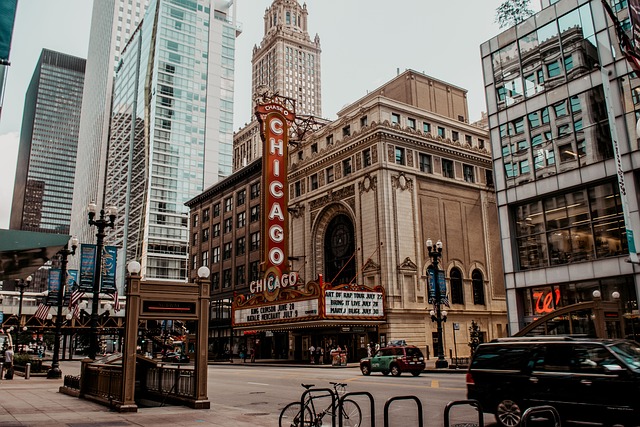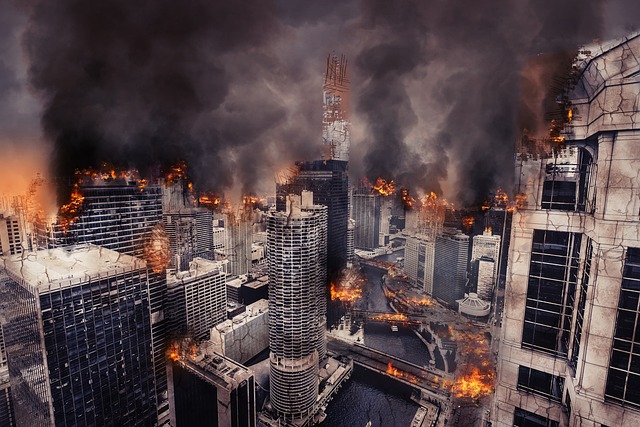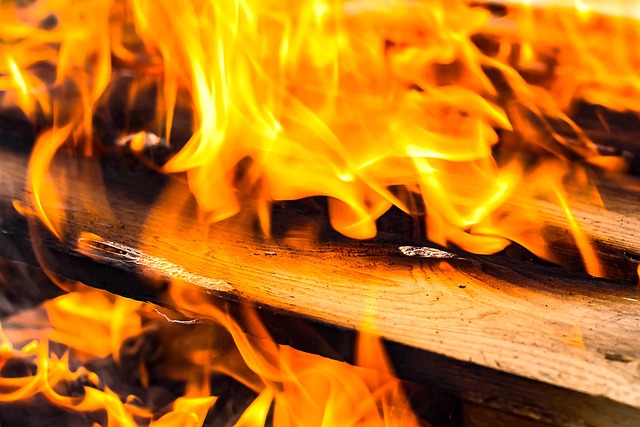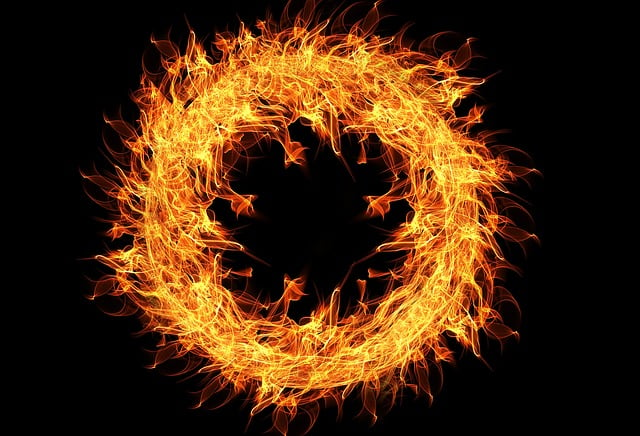In Illinois, especially within Chicago's real estate market, property disclosure laws strictly mandate transparency regarding fire damage. Sellers must disclose all signs of fire and smoke damage, from visible charring to subtle odors, while buyers should conduct thorough inspections. This process ensures legal compliance, buyer awareness, and fair transactions, particularly for properties with fire damage in Chicago. Both parties have rights and responsibilities; understanding these laws is crucial for navigating the sale of homes with such damage, including knowing the answer to "can you sell a house that has fire damage Chicago?".
In Chicago and throughout Illinois, property disclosure laws play a crucial role in ensuring transparency during real estate transactions. Understanding these regulations is essential for both buyers and sellers, especially when dealing with potential fire damage. This article guides you through the intricacies of Illinois property disclosure laws, clarifying what constitutes fire damage, seller obligations to disclose defects, and the implications of non-disclosure. Learn about legal recourse for buyers and their rights in Chicago if a property has experienced fire damage.
- Understanding Property Disclosure Laws in Illinois
- What is Considered Fire Damage for Legal Purposes?
- Seller's Obligation to Disclose Material Defects
- Implications of Non-Disclosure: Buying and Selling Risks
- Legal Recourse for Buyers: Rights and Remedies
Understanding Property Disclosure Laws in Illinois
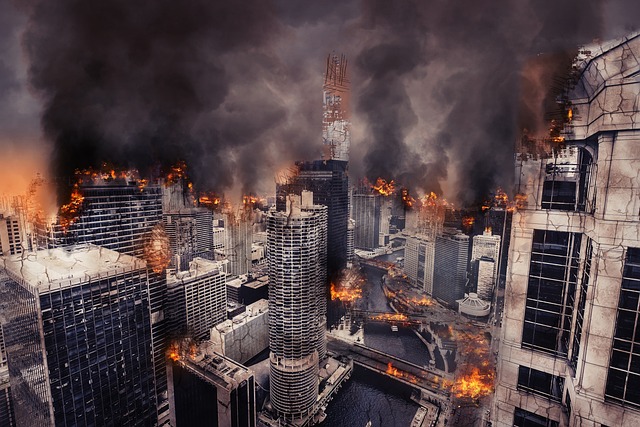
In the state of Illinois, property disclosure laws play a crucial role in ensuring transparency during real estate transactions, especially when it comes to selling homes with fire damage in Chicago. These laws require sellers to disclose any known defects or material facts that could impact a buyer’s decision to purchase a property. Fire damage is indeed a significant concern and can be considered a material fact, as it may affect the structural integrity of the house and its overall value.
Understanding these disclosure requirements is essential for both buyers and sellers. When selling a home with fire damage in Chicago, the seller must disclose details about the incident, including when it occurred, the extent of the damage, and any repairs carried out. Failure to do so may result in legal repercussions. Buyers, on the other hand, should carefully review any disclosures made and have the right to conduct inspections to assess the property’s condition thoroughly. This process helps ensure that buyers make informed decisions and are aware of potential issues before purchasing a home with fire damage.
What is Considered Fire Damage for Legal Purposes?

When it comes to Illinois property disclosure laws, understanding what’s considered fire damage is crucial for both sellers and buyers in Chicago. For legal purposes, fire damage refers to any structural or cosmetic alterations resulting from a fire incident. This includes visible signs of charring or burning on walls, ceilings, floors, and fixtures, as well as repairs or replacements made due to the fire. It’s essential to disclose these damages to potential buyers, ensuring transparency in the real estate transaction process.
Furthermore, even subtle traces of smoke damage, such as discolored walls or odors, should be mentioned. While not always visible, these indicators can significantly impact a home’s value and are pertinent legal considerations when selling a property with fire damage in Chicago.
Seller's Obligation to Disclose Material Defects
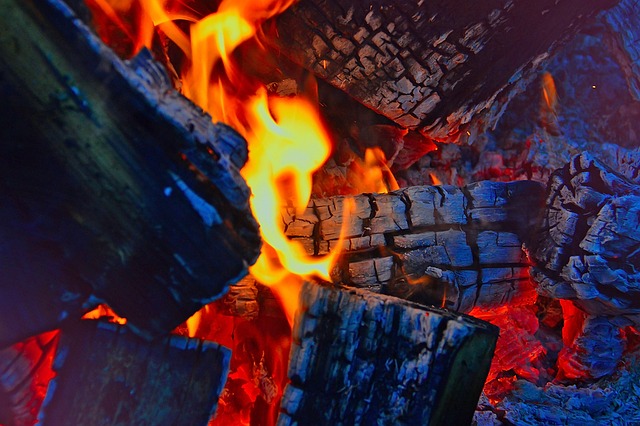
In Illinois, including the bustling city of Chicago, sellers have a legal obligation to disclose any material defects present in the property they are selling. This is an essential aspect of property transactions, ensuring buyers are fully informed about the condition of the home they intend to purchase. Fire damage, for instance, falls under this category of required disclosures. If a house has sustained fire damage, sellers must inform potential buyers about the extent and nature of the damage.
The state’s laws mandate that sellers reveal any known issues that could impact a buyer’s decision or incur additional costs for repair. In the case of fire damage, this might include structural repairs, replacement of fixtures, or updates to electrical systems. Buyers have a right to know if there are hidden dangers or significant repairs needed to ensure they make an informed choice when purchasing a home, especially when considering a property with fire damage in Chicago.
Implications of Non-Disclosure: Buying and Selling Risks

When selling a property in Illinois, including homes with fire damage in Chicago, failure to disclose material defects can have significant implications. If a buyer later discovers undisclosed issues, such as extensive fire damage, they may have legal recourse under the state’s property disclosure laws. This is particularly true if the seller knew or should have known about the damage and intentionally or negligently failed to reveal it.
Buying a home is a substantial investment, and buyers rely on accurate disclosures to make informed decisions. Non-disclosure can lead to disputes, legal action, and financial losses for both parties involved. Sellers must be transparent about any significant issues that could affect the property’s value or safety, ensuring potential buyers are fully aware of what they’re purchasing. This transparency is key to maintaining fair and ethical practices in the real estate market.
Legal Recourse for Buyers: Rights and Remedies

When it comes to buying or selling a property in Illinois, especially in areas like Chicago, buyers have certain rights and protections under the law, particularly when dealing with fire damage. If you’re considering purchasing a house that has suffered fire damage, it’s crucial to understand your legal recourse.
In such cases, buyers are entitled to receive accurate information about any pre-existing conditions, including structural issues or damage from disasters like fires. Sellers are legally obligated to disclose known defects that could impact the property’s value or safety. If a seller fails to disclose fire damage and subsequent repairs, buyers may have grounds for legal action. This includes seeking compensation for any additional repair costs or even rescinding the sale if the damage is severe and not properly disclosed. Understanding these rights empowers buyers to make informed decisions and protect themselves from potential financial burdens in the future, especially when dealing with properties that have experienced fire damage in Chicago or anywhere else in Illinois.
When selling a home in Chicago, understanding Illinois’ property disclosure laws regarding fire damage is crucial. Knowing what constitutes legal fire damage and a seller’s duty to disclose material defects can help buyers make informed decisions and mitigate potential risks. Non-disclosure may lead to legal repercussions, emphasizing the importance of transparency. If you’re considering purchasing a house with fire damage, exploring your rights and remedies ensures a smooth transaction or enables you to take appropriate action.

